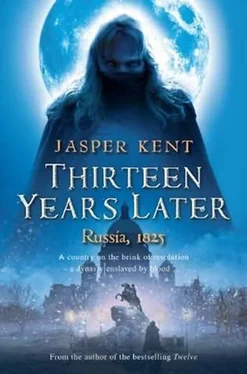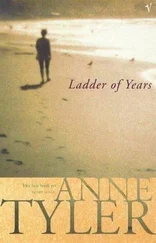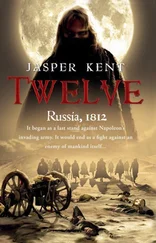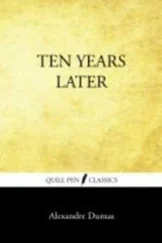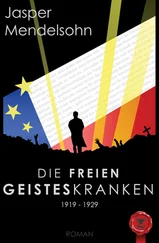Aleksei turned and looked around. He could see all along the English Quay, the Winter Palace in one direction and the Admiralty and Senate Square in the other. The city was busy, but he did not see the man he was expecting. He looked at his watch. It wasn’t quite four in the afternoon, so his contact was not late. Aleksei turned back to the river, leaning forward and resting his hands on the low wall, his fingers splayed out to support his weight – five on his right hand and three on his left. He had been without those two fingers of his left hand now for fifteen years – almost the whole of his son’s life.
Dmitry had finally come home in the early hours of the morning, but they had not spoken. There were only a few weeks left to do so before Dmitry had to go and join his regiment in Moscow. Perhaps it would be better to leave things. Dmitry would enjoy the army life, Aleksei was sure, and with luck his resentment would evaporate as he began to immerse himself in it. But Aleksei had often failed to understand his son’s character. For the first nine years of his life, Aleksei had only been home briefly and occasionally. Marfa and Dmitry could only know part of the reason.
Up until the French invasion, Aleksei had been a member of an élite band: himself, Maks, Dmitry Fetyukovich and their leader, Vadim. That much was no secret, nor was, in general terms, what they did, though Aleksei rarely shared the details of the spying and the sabotage he undertook, sometimes with his comrades, sometimes alone; never of the assassinations. Then Dmitry Fetyukovich had introduced twelve new allies to the cause. The Oprichniki – that’s what they’d called them, after Russia’s once-feared secret police. Aleksei had soon discovered their true, inhuman nature, but by then it was too late. Aleksei had been the only survivor – out of either the Oprichniki, or his three friends. He had returned to the regular army, but there was little work left to be done. Bonaparte was already routed.
Peace in Europe had allowed him to spend more time in Russia and, of that, more time in Petersburg, but Aleksei wondered whether even by then it had not been too late. He tried to recall his own father, but the memories were foggy. He had been young – much younger than Dmitry was now – at the time of his father’s death. But at least there was a memory of someone; someone who had been present almost every day amongst Aleksei’s earliest recollections. He regretted that he had not ensured such a place in his own child’s memories. At least he might learn from his mistakes with Dmitry.
‘Aleksei Ivanovich.’ The voice came from his right. He glanced sideways, to confirm who was speaking.
‘Yevgeniy Styepanovich,’ he said, looking out across the water and making no further movement to acknowledge the presence of another. Yevgeniy Styepanovich looked upwards, switching his gaze between the high buildings around them, and then squinting, as if trying to focus on the clock on the Admiralty tower. Aleksei suspected that anyone who saw them would not be in the slightest doubt they were talking to one another, but Yevgeniy insisted on at least the formalities of a secret rendezvous.
‘Well?’ said Yevgeniy.
‘I need to see him,’ replied Aleksei.
‘In person?’
Aleksei nodded. ‘I’m afraid so.’
‘The official line is that he’s already left.’
‘And has he?’
Yevgeniy paused. Aleksei could sense his eyes glancing towards him, assessing him. Yevgeniy’s fingers fiddled with the braid of his uniform before he spoke. ‘He’s left the city, yes, but he’s still nearby.’
‘Where?’
‘Right now, he’s in Pavlovsk, visiting his mother.’
‘And later?’
‘He’ll be at the dacha on Kamenny Island, but he won’t want to see you there.’
Nor I him, thought Aleksei. There would be far too many people. ‘Anywhere else?’ he asked.
‘He’ll visit the monastery before he goes.’ Yevgeniy blurted the words out quickly, as if it lessened his betrayal.
‘Which monastery?’ asked Aleksei.
‘Which monastery?’ The sarcasm of Yevgeniy’s voice betrayed a hint of scorn. ‘His monastery,’ he said.
Aleksei nodded again. It was an odd way to describe it, but it made sense. And Yevgeniy had been right to be sarcastic – there was no question as to which monastery. ‘When?’ he asked.
‘In the early hours. Can’t you just give me a message?’
‘No,’ said Aleksei thoughtfully. ‘I have to speak to him.’
Even before the words had left his lips, Aleksei sensed he was alone again. He turned and saw the tall figure in the uniform of a lieutenant general making its way back towards the Winter Palace. Aleksei himself chose to head in the opposite direction, walking downstream alongside the Neva. He had plenty of time before he needed to be at the monastery. He passed the Admiralty and found himself in Senate Square. The Isaakievsky Bridge, floating on the river on its pontoons, stretched north over to Vasilevskiy Island. Aleksei turned away from the river and strode into the square.
He stood at the foot of the statue and looked up. The massive block of granite – the Thunder Stone – that formed its pedestal towered above him. The horse’s bronze hooves kicked at the air. Here was Pyotr the Great – founder of the city. That, to Aleksei’s mind, as a lover of the old capital, had been his only error. Beyond that, the epithet ‘great’ truly applied. He had dragged his reluctant country out of its miserable isolation – dragged it both to the West and to the future. Subsequent tsars and tsaritsas had wavered, but none had been able to halt the momentum which Pyotr had begun.
Trampled under the feet of the horse upon which Pyotr rode was a serpent. It symbolized – so the sculptor, Falconet, had claimed – treason, crushed by Russia’s rightful emperor. But for Aleksei, the whole image seemed designed to pose Pyotr as Saint George slaying the dragon. True, Saint George had little specifically to do with Petersburg. He was the patron saint of Moscow – but the images and icons of him that were scattered throughout the old capital generally took the same basic form: the saint on horseback, victorious, as the beast writhed in its death throes beneath. Admittedly the beast would have wings and the saint would carry a spear, but these were mere details. Aleksei’s mind turned inevitably to Zmyeevich – the ‘son of the serpent’, if his name was taken literally – who had led the twelve Oprichniki to Russia in 1812. Aleksei could picture the ornate ring that Zmyeevich had worn – a golden serpent with green eyes and a protruding red tongue. He would have liked to compare himself to Saint George, or to Pyotr, but he had never defeated or even confronted Zmyeevich, who had slithered back to his own land.
Aleksei looked up at the statue again, at the tsar’s small features. Perhaps the similarity to Saint George was unintentional. Why should Pyotr, the founder of this city, be associated with the patron of Moscow? True, the saint appeared on the escutcheon of the Romanov coat of arms, but again that was due to the connections with Moscow. Anyway, Pyotr had had no choice in the design of the statue; that had been down to his successor Yekaterina, again given the epithet ‘great’, who had commissioned it. But the same question could be asked of her. That the serpent represented treason made more sense – that, after all, was what every tsar and tsaritsa should fear. And not without reason.
Aleksei walked away, going south across the square, his thoughts set upon that evening’s rendezvous.
‘They plan to kill you, Your Majesty.’
The voice spoke quietly, but did not whisper. It came from the darkness to the left. The man who uttered the words must have been an arm’s reach from the tsar, but he had not seen him. Aleksandr had deliberately let the metropolitan get ahead of him, so that he might be for a moment alone in the bowels of the monastery – a moment of solitude being all that a man in his position could ever hope for.
Читать дальше
